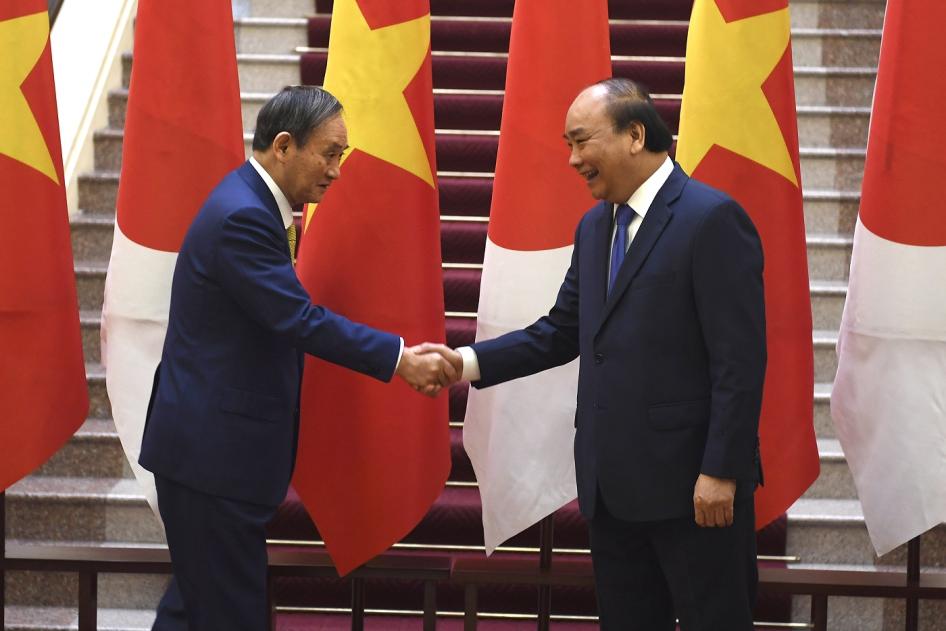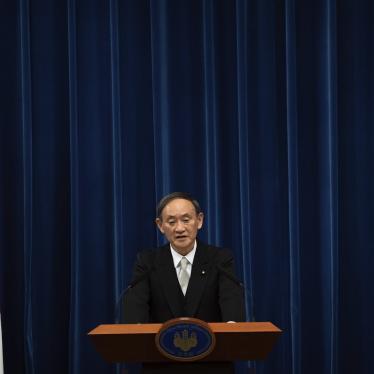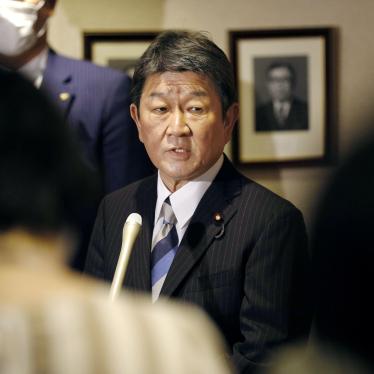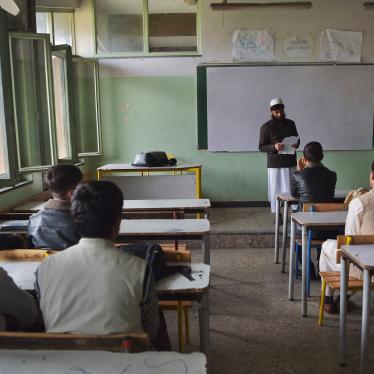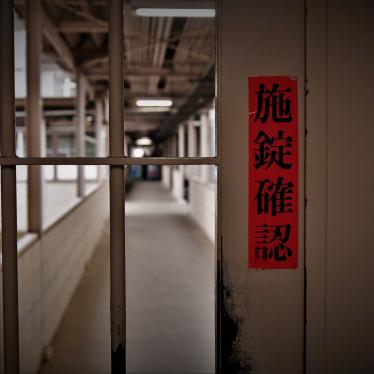(Tokyo) – The Japanese government should immediately cancel plans to provide financial assistance to Vietnam’s Ministry of Public Security, which has long been responsible for serious human rights violations, Human Rights Watch said today.
On October 19, 2020, Japan’s Foreign Ministry announced a 300 million yen (US$2.84 million) grant for the Public Security Ministry to purchase unspecified equipment for “counterterrorism” and the “maintenance of public order.” The Foreign Ministry claimed the grant would “contribute” to the “strengthening of counterterrorism measures and the maintenance of public order,” and would “stabilize society” in Vietnam.
“The Japanese government should not give a single yen to Vietnam’s Public Security Ministry, which is a notorious violator of human rights with a long track record of torturing criminal suspects and human rights defenders,” said Phil Robertson, deputy Asia director. “Providing Vietnam equipment under the guise of counterterrorism and public order will just make it easier for the police to brutally suppress peaceful protests.”
Over the last several decades, the Vietnamese police force, which operates under the supervision of the Public Security Ministry, has beaten, tortured, and otherwise ill-treated countless people in custody with near impunity. Human Rights Watch documented the systematic use of torture against ordinary criminal suspects in the 2014 report “Public Insecurity: Deaths in Custody and Police Brutality in Vietnam.”
In September, Tran Van Quynh, 40, alleged that three police officers from Na Mao commune in Thai Nguyen province detained him without providing a reason, and beat him severely. He was admitted to the hospital a few days later and was diagnosed with a ruptured intestine. Two of the police officers reportedly visited him in the hospital and promised to pay for his medical treatment, but the authorities have not investigated the incident.
In November 2019, Dang Thanh Tung, 26, died in police custody in Ha Nam province. Police had arrested him in September for alleged involvement in procuring girls for prostitution. The police claimed that Dang died from illness, but his wife, Nguyen Thi Lan, told a reporter she saw many bruises on his body. She reported bruises on his chest, back, arms, thighs, and buttocks and said his mouth was swollen and bloody. She also reported that the police tried to prevent her from taking videos of the bruises.
Vietnamese police also participate in the suppression of basic rights such as freedom of expression and assembly through intimidation and arrests in the name of counterterrorism. In January 2019, the police arrested an Australian national, Chau Van Kham, on fabricated charges of “terrorism” for his affiliation and peaceful activities with Viet Tan, an opposition political party, which operates lawfully in many countries, but which Hanoi has arbitrarily labeled “terrorist.” In November 2019, a Vietnamese court convicted Chau and sentenced him to 12 years in prison. Chau is among the more than 130 political prisoners in Vietnam, held for the peaceful exercise of their fundamental rights.
In response to a Human Rights Watch inquiry about the type of equipment to be purchased using Japan’s financial aid, Japan’s Foreign Ministry said it will be determined in coordination with the Vietnamese government going forward.
Rather than granting assistance, Japan should publicly and privately call on the Vietnamese government to carry out major institutional reforms in the Public Security Ministry. These reforms should include establishing an independent police complaints commission to accept complaints from the public and to provide oversight of the internal affairs and professional responsibility units of the police.
The ministry should also revise police regulations and manuals regarding the use of force to meet international legal standards, including the United Nations Code of Conduct for Law Enforcement Officials and the UN Basic Principles on the Use of Force and Firearms by Law Enforcement Officials, and it should allow independent civil society groups to monitor detention facilities, including station lockups and jails as well as guarantee immediate access for suspects’ legal counsel upon being arrested.
“Japanese taxpayers should demand that their government uphold human rights principles in its overseas aid program, starting with canceling this grant to Vietnam’s most abusive line ministry,” Robertson said. “Japan’s leaders should be using their significant leverage in Hanoi to seek real improvements and reforms, not make an already bad human rights situation even worse.”
Japan: End Aid to Vietnam’s Police
Vietnamese Public Security Ministry a Major Rights Violator
Your tax deductible gift can help stop human rights violations and save lives around the world.
Most Viewed
-
April 12, 2024
Belarus Calls LGBT Lives ‘Pornography’

-
November 25, 2019
A Dirty Investment

-
June 24, 2022
Q&A: Access to Abortion is a Human Right

-
April 9, 2024
Gaza: Israel’s Imposed Starvation Deadly for Children
-
October 29, 2020
“I Sleep in My Own Deathbed”

